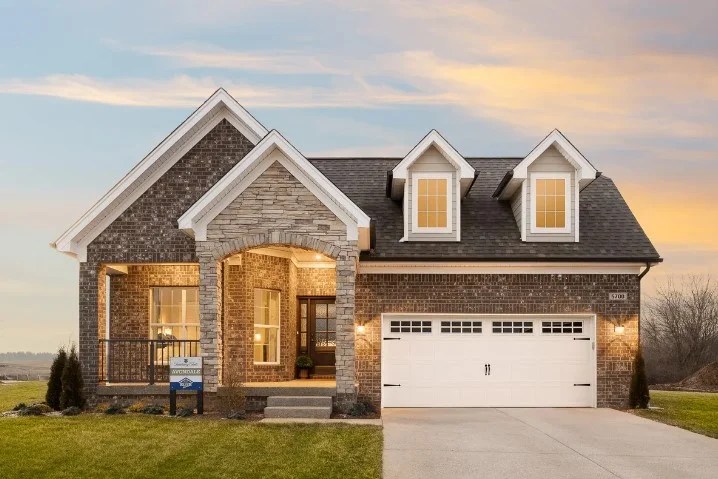
New Homes for Sale: A Guide to Finding Your Dream Home
Are you in the market for a new home? Whether you’re a first-time buyer or looking to upgrade, purchasing a new home can be an exciting venture. With various options available, finding the perfect home that suits your needs and preferences can seem overwhelming. In this comprehensive guide, we’ll explore everything you need to know about new homes for sale, from the benefits of buying new to important considerations and trends in home construction.
Benefits of Buying a New Home
Energy Efficiency
One of the primary advantages of purchasing a new home is its energy efficiency. New homes are built with the latest technology and materials, resulting in better insulation and reduced energy consumption. This not only helps the environment but also lowers utility bills for homeowners.
Customization Options
When buying a new home, you have the opportunity to customize it according to your taste and lifestyle. From choosing floor plans to selecting finishes and fixtures, you can create a home that reflects your personality and meets your specific needs.
Modern Amenities
New homes often come equipped with modern amenities and features that enhance comfort and convenience. From state-of-the-art kitchens to luxurious bathrooms and integrated smart home systems, new homebuyers can enjoy the latest in home design and technology.
Considerations Before Purchasing a New Home
Location
Location plays a crucial role when buying a new home. Consider factors such as proximity to schools, workplaces, shopping centers, and recreational facilities. Additionally, research the neighborhood to ensure it aligns with your lifestyle and preferences.
Budget
Before starting your search for a new home, determine your budget and affordability. Consider factors such as down payment, monthly mortgage payments, property taxes, and homeowners’ association fees. Stick to your budget to avoid financial strain in the long run.
Builder Reputation
When buying a new home, it’s essential to research the reputation of the builder. Look for builders with a proven track record of quality construction and customer satisfaction. Read reviews, visit model homes, and ask for referrals from previous buyers to gauge the builder’s reliability and professionalism.
Steps to Buying a New Home
Researching Builders
Begin your homebuying journey by researching reputable builders in your desired location. Visit their websites, explore their portfolios, and read customer testimonials to assess their credibility and expertise. Narrow down your choices to a few builders that meet your criteria.
Mortgage Pre-Approval
Before house hunting, get pre-approved for a mortgage to determine how much you can afford to borrow. This will give you a clear idea of your budget and streamline the homebuying process. Shop around for competitive mortgage rates and terms from different lenders.
Home Inspection
Once you’ve found a new home that meets your requirements, schedule a professional home inspection. A thorough inspection will uncover any potential issues or defects in the property, allowing you to make an informed decision. Work with a licensed inspector who has experience with new construction homes.
Closing Process
The closing process involves signing the necessary paperwork and transferring ownership of the property. Review all documents carefully and ensure that all terms and conditions are met before closing. Work closely with your real estate agent and lender to ensure a smooth and successful closing.
Popular Features in New Homes
Open Floor Plans
Open floor plans are a common feature in new homes, offering spacious and flexible living spaces. This design trend promotes better flow and connectivity between rooms, making it ideal for modern living and entertaining.
Smart Home Technology
Many new homes come equipped with smart home technology, including integrated systems for lighting, security, temperature control, and entertainment. These advanced features provide homeowners with greater convenience, security, and energy efficiency.
Eco-Friendly Materials
Sustainable and eco-friendly materials are becoming increasingly popular in new home construction. From energy-efficient appliances to recycled building materials and solar panels, homeowners can reduce their carbon footprint and lower their utility bills while enjoying a healthier living environment.
Tips for Negotiating the Price
Negotiating the price of a new home requires careful preparation and strategy. Research comparable properties in the area, assess market conditions, and identify any potential leverage points. Be prepared to make a reasonable offer based on your budget and the value of the property.
Financing Options for New Home Buyers
Traditional Mortgages
Traditional mortgages are a popular financing option for new homebuyers. With a fixed or adjustable interest rate, borrowers can secure a loan with a down payment and make monthly payments over a set term.
FHA Loans
Federal Housing Administration (FHA) loans are government-backed mortgages that offer low down payment options and flexible qualification requirements. These loans are ideal for first-time homebuyers and individuals with less-than-perfect credit.
VA Loans
Veterans Affairs (VA) loans are available to eligible military service members, veterans, and their families. These loans offer competitive interest rates, no down payment, and no private mortgage insurance, making them an attractive option for those who qualify.
Trends in New Home Construction
New home construction is constantly evolving to meet the changing needs and preferences of homebuyers. Some current trends in home construction include sustainable design, multi-generational living spaces, and home automation technology.
Comparison: New Homes vs. Existing Homes
When deciding between a new home and an existing home, consider factors such as age, condition, location, and customization options. While existing homes may offer charm and character, new homes provide modern amenities, energy efficiency, and customization opportunities.
Sustainable Practices in New Home Construction
Sustainability is a growing focus in the construction industry, with builders incorporating eco-friendly practices and materials into new home construction. From energy-efficient designs to renewable energy sources, sustainable homes help minimize environmental impact and reduce operating costs for homeowners.
Conclusion
Buying a new home is an exciting milestone that offers numerous benefits and opportunities for customization. By carefully considering your needs, budget, and preferences, you can find the perfect new home that meets your criteria and enhances your quality of life.
FAQs
Are new homes more expensive than existing ones?
While new homes may have a higher initial purchase price, they often come with lower maintenance costs and energy bills, making them a worthwhile investment in the long run.
How long does it take to build a new home?
The timeline for building a new home varies depending on factors such as the size, complexity, and location of the property. On average, the construction process can take anywhere from six months to a year or more.
Can I customize the design of my new home?
Yes, many builders offer customization options for new homes, allowing buyers to personalize floor plans, finishes, and fixtures according to their preferences.
Are warranties included when buying a new home?
Yes, most new homes come with warranties that cover structural defects, mechanical systems, and appliances for a certain period after purchase. Be sure to review the warranty terms and conditions before buying.
What are some common misconceptions about buying new homes?
One common misconception is that new homes are always more expensive than existing ones. While new homes may have a higher upfront cost, they often provide better value in terms of energy efficiency, modern amenities, and customization options.
You May Also Like

Home Decoration: Enhancing Your Living Space
January 10, 2024
Home Renovation: Transforming Your Living Space
December 8, 2023

